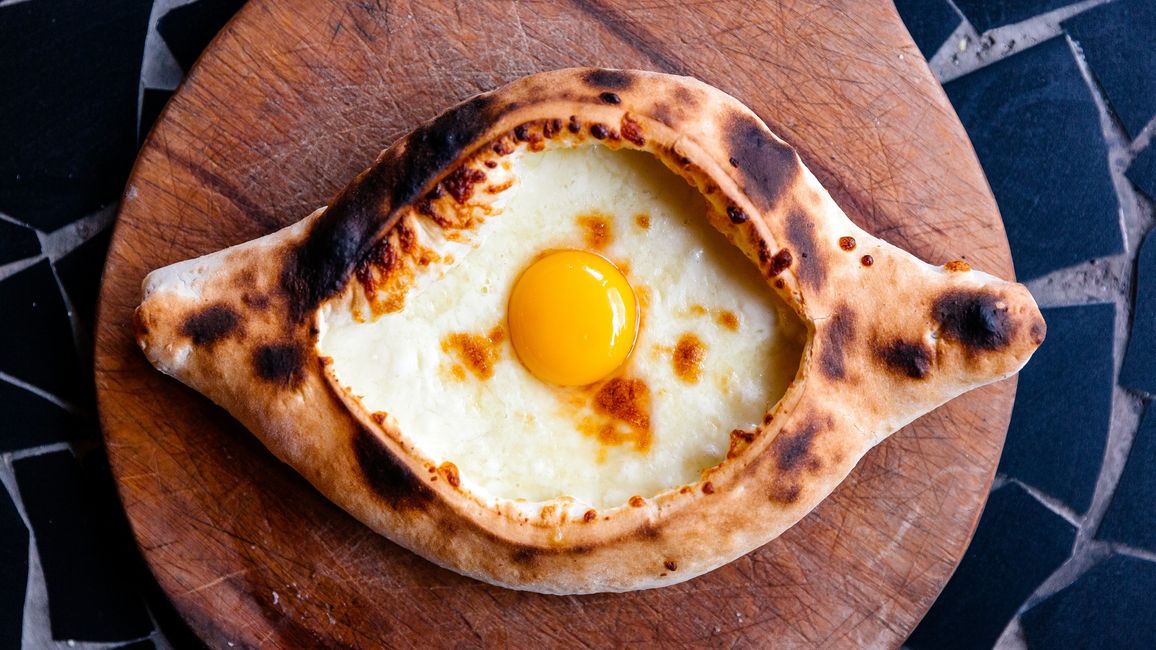Don Curry spends the night in a caravanserai
Nai-publish: 09.10.2023
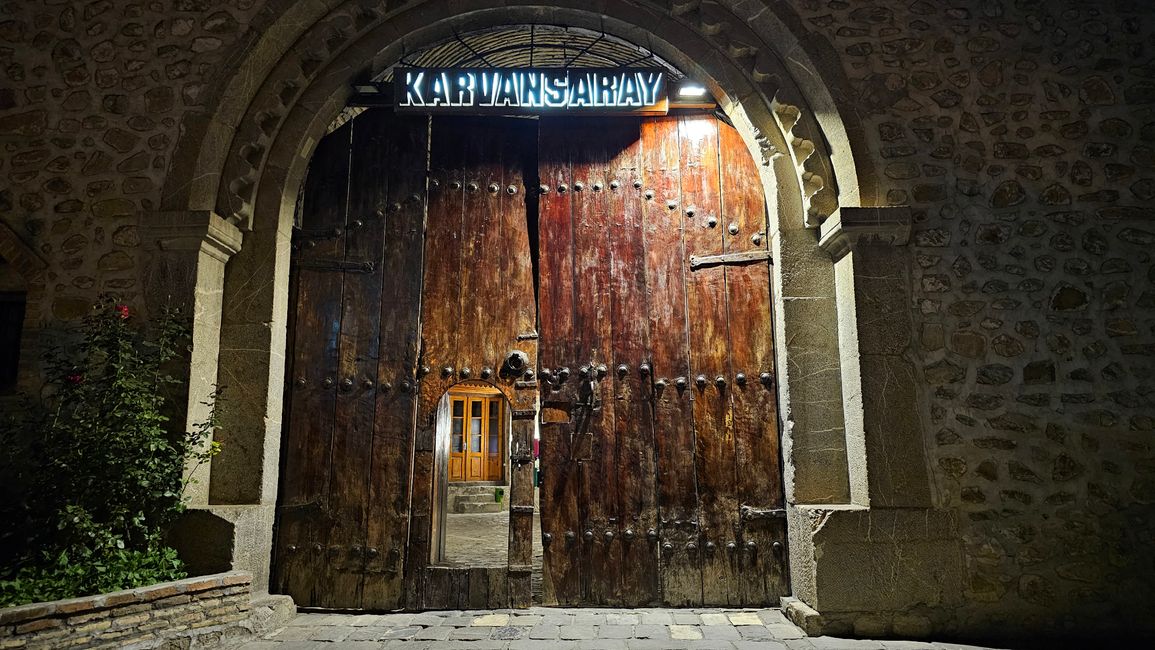
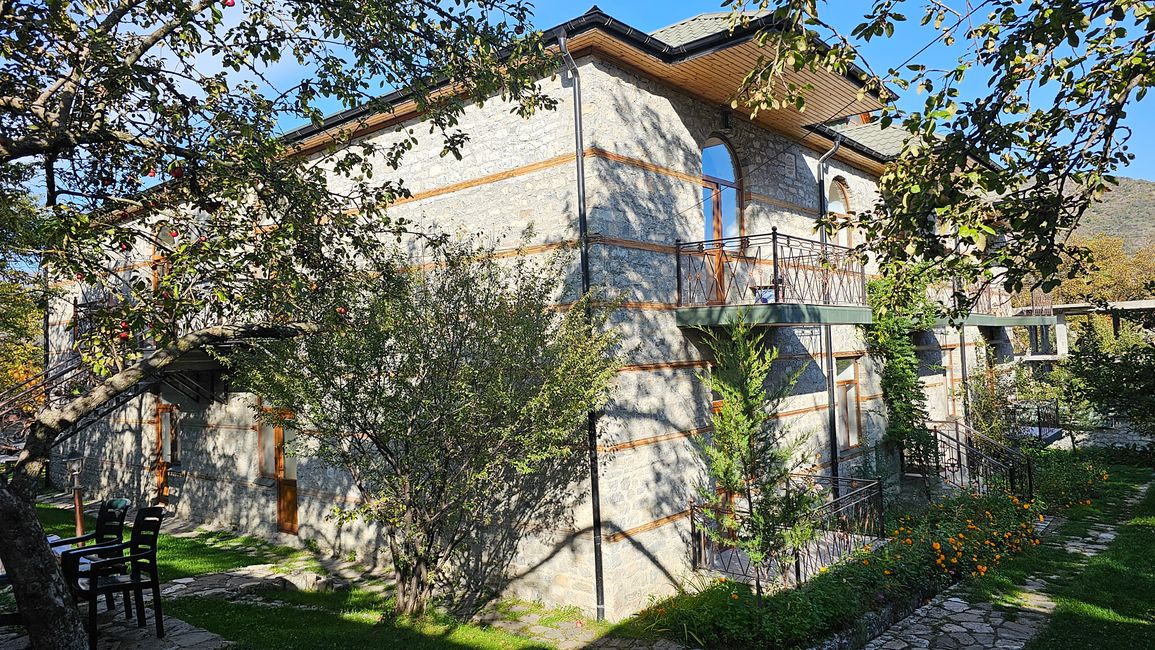
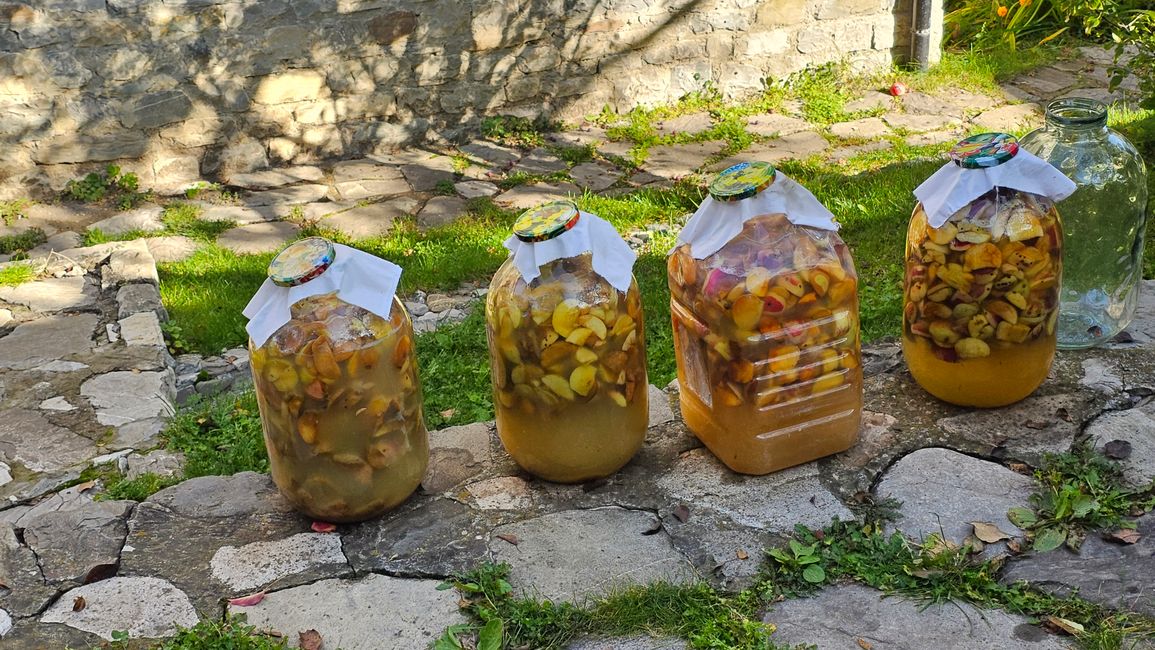
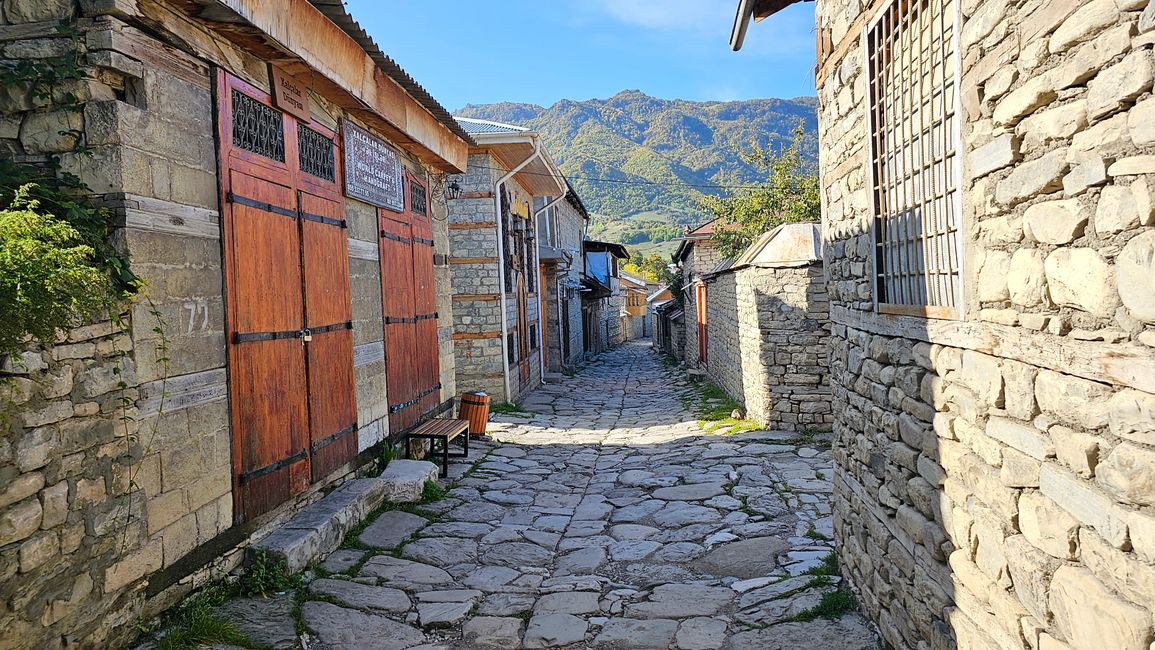
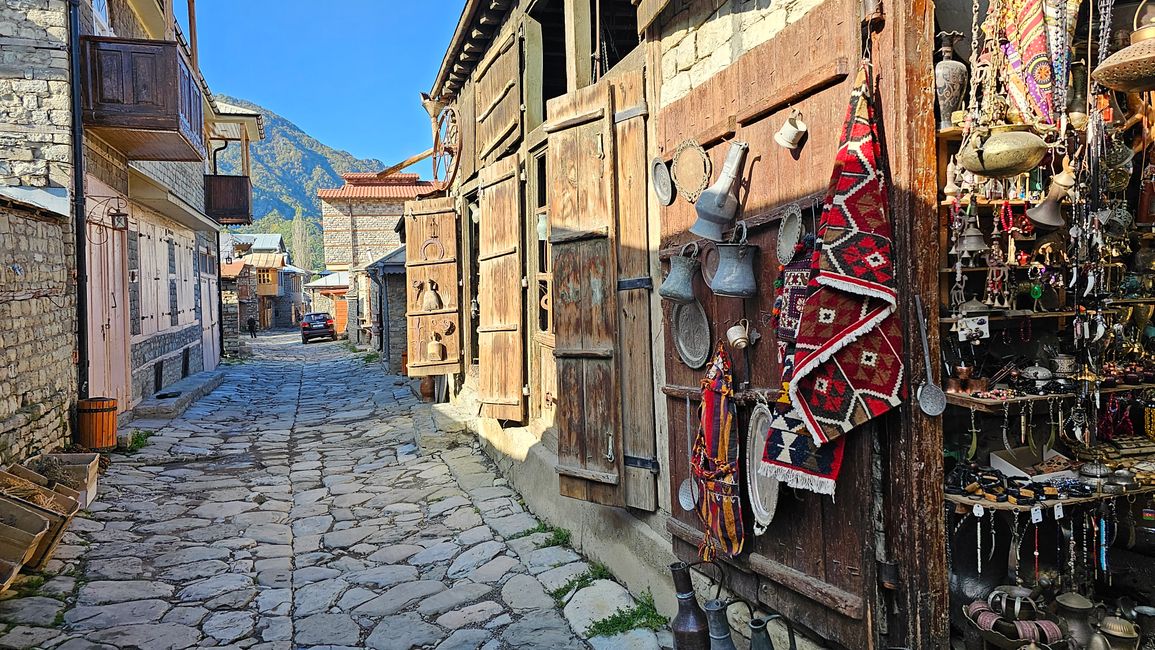
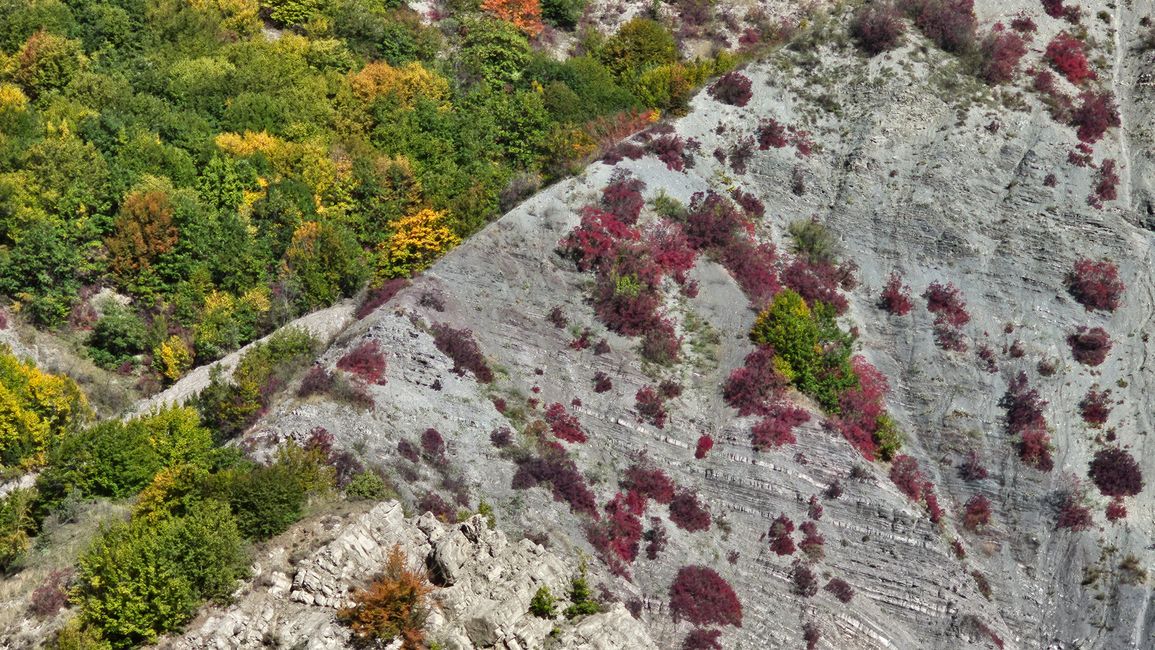
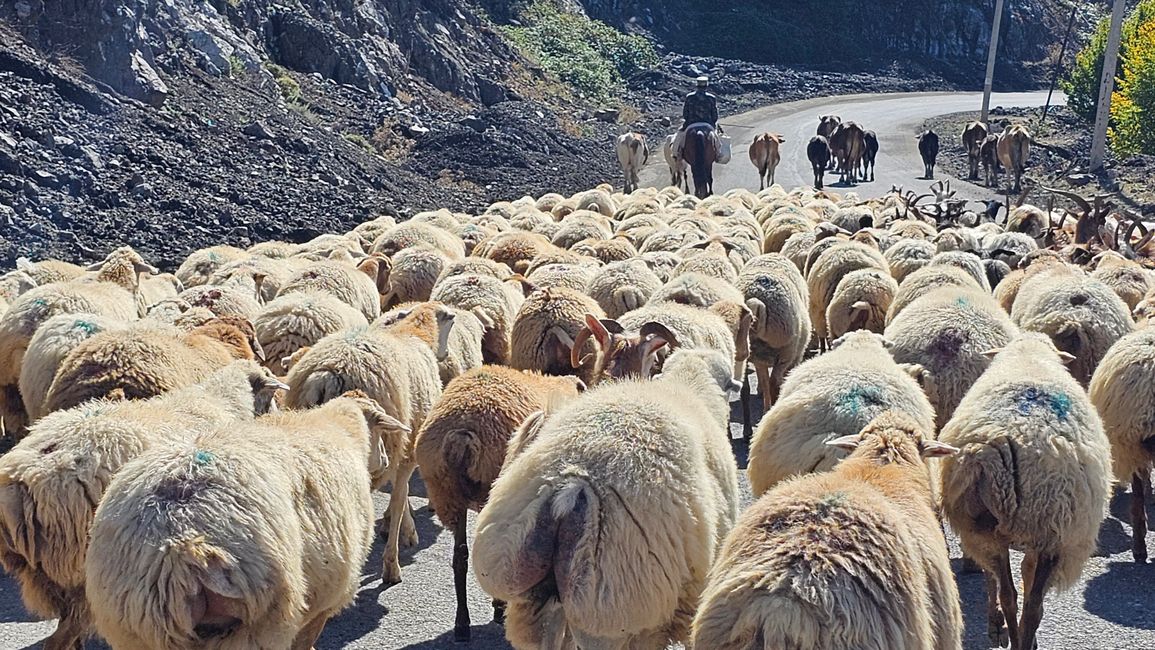
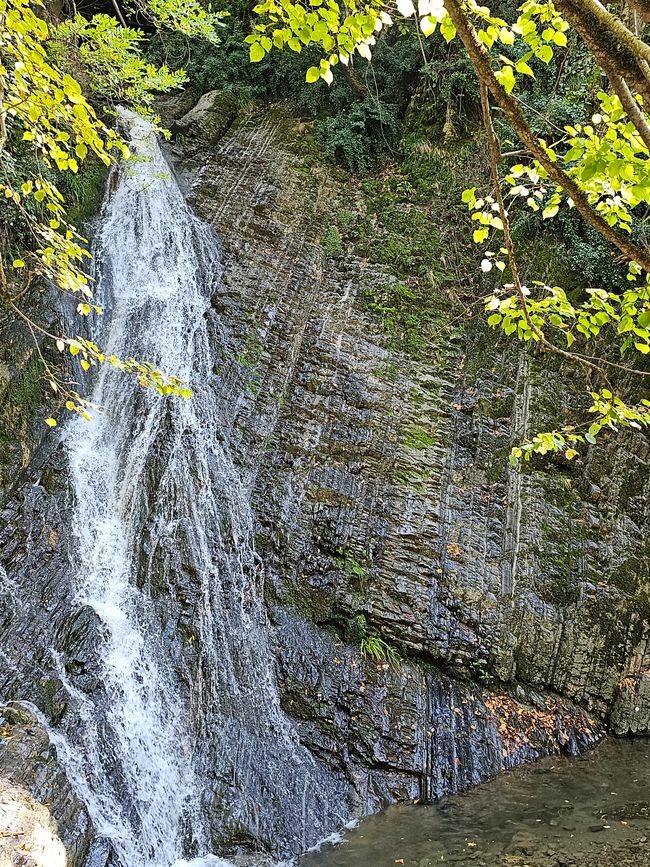
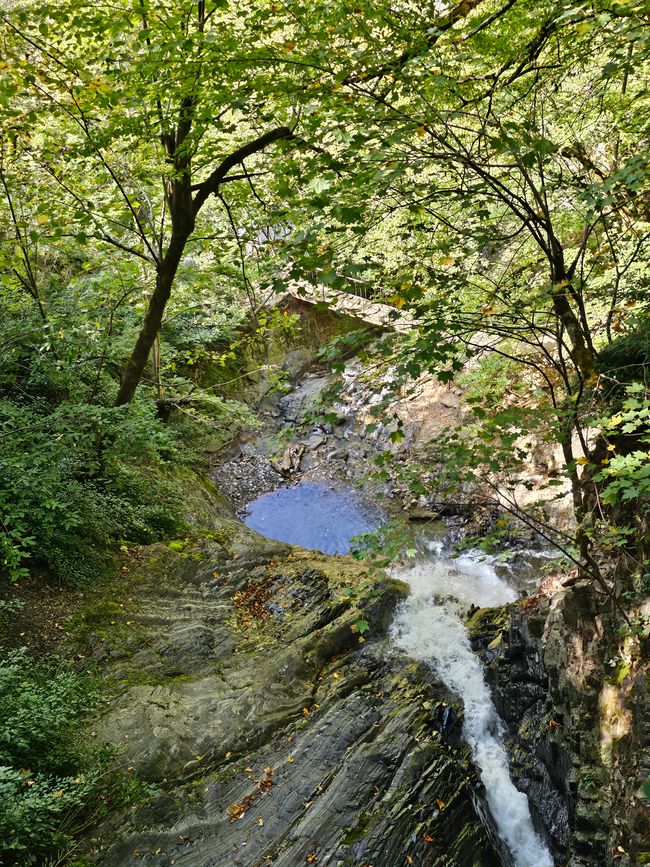
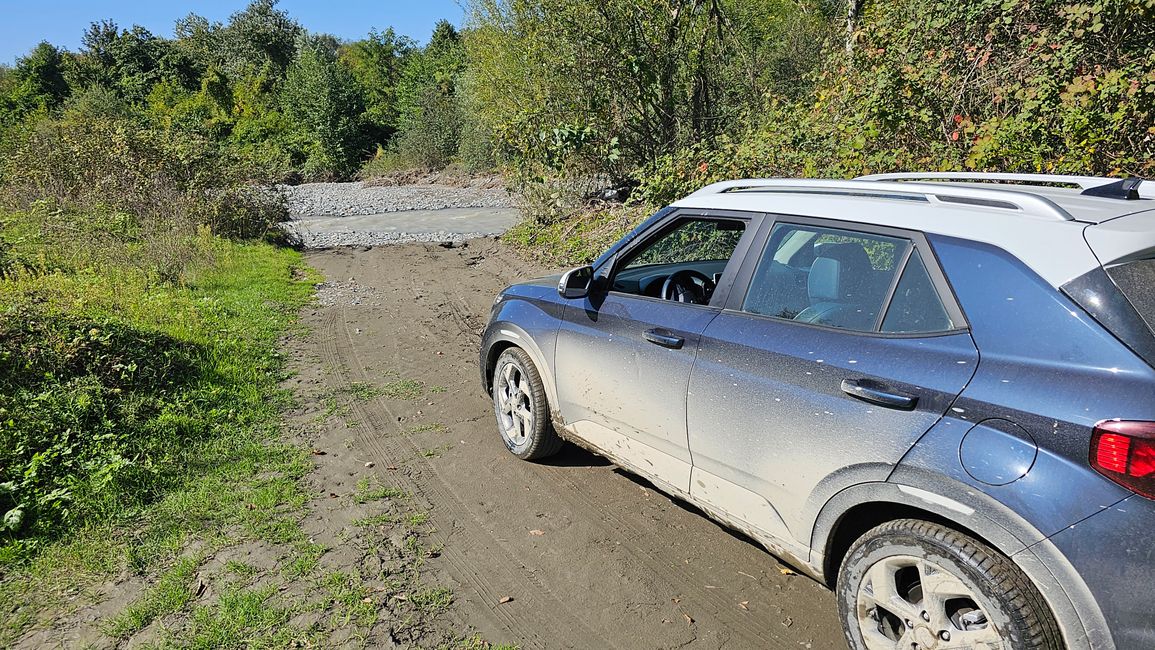
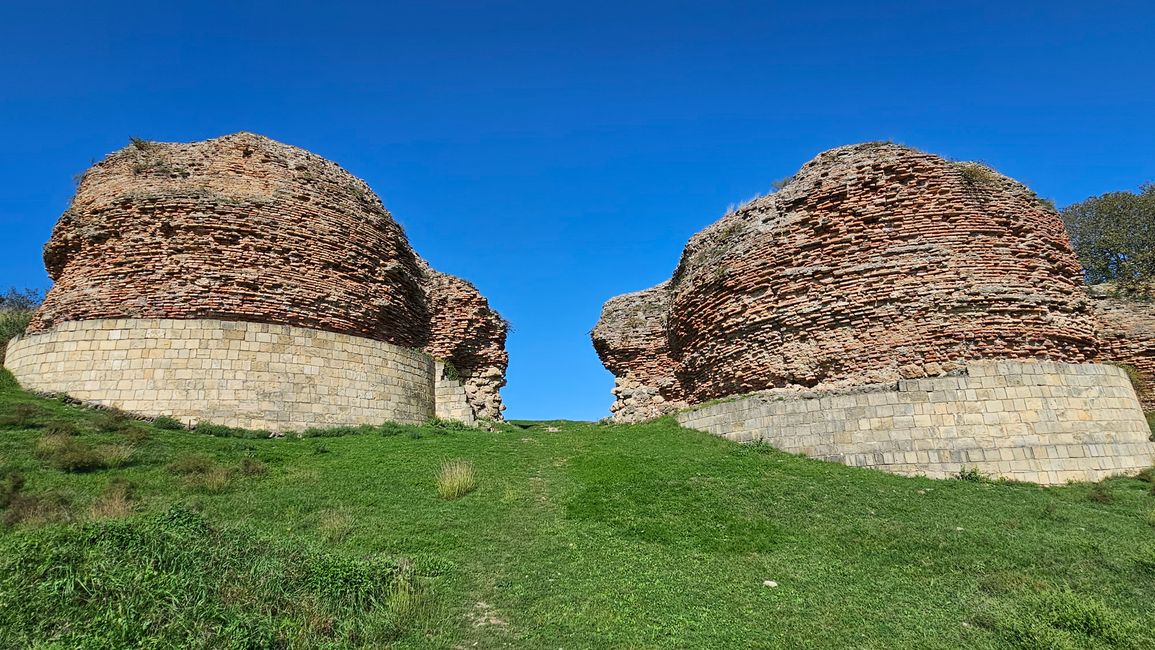
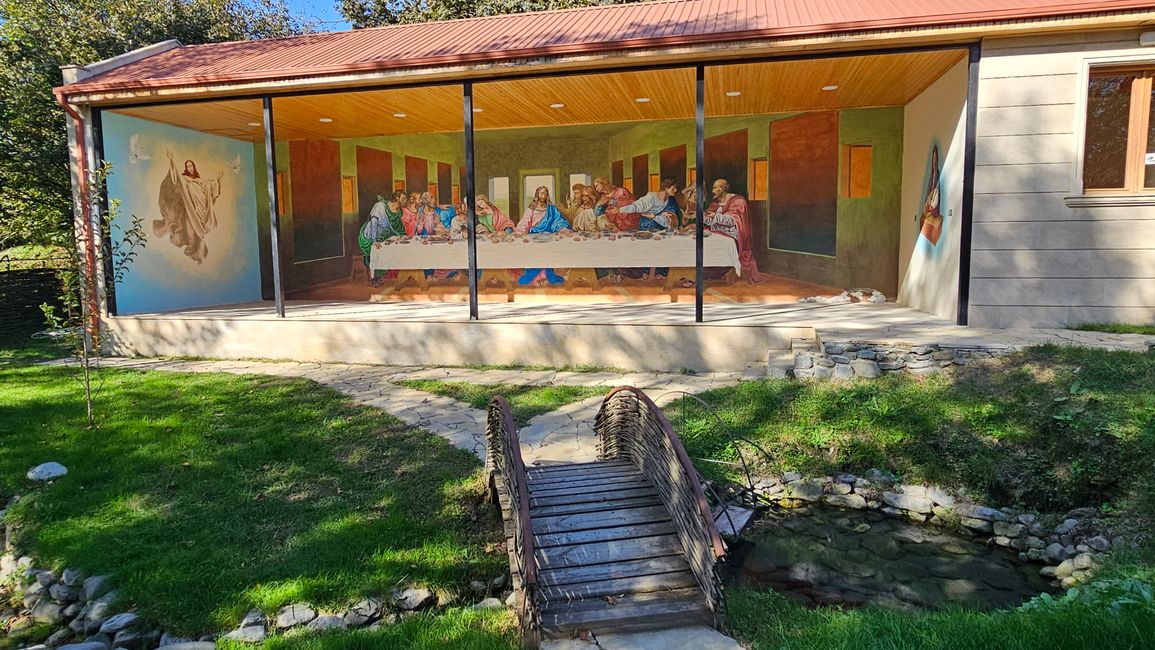
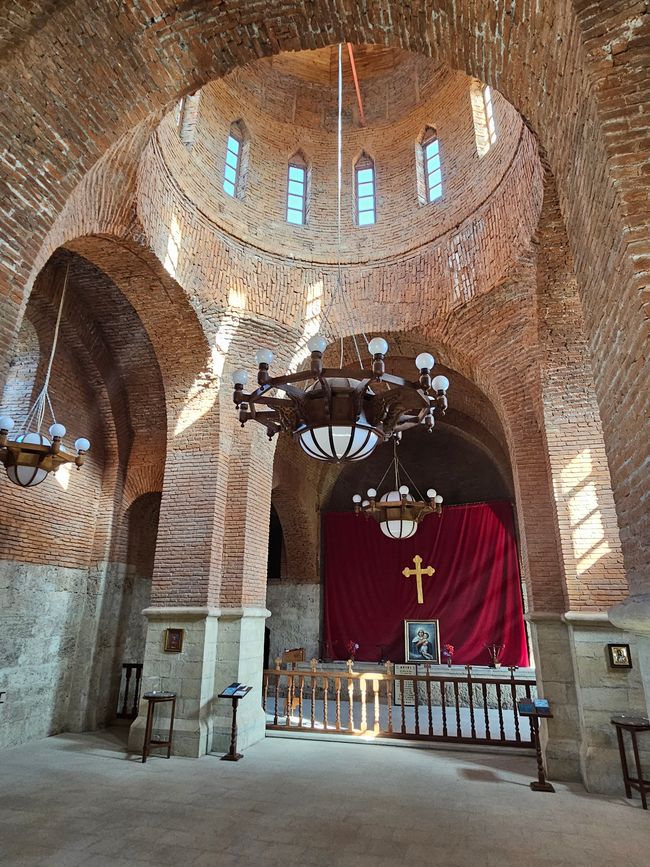
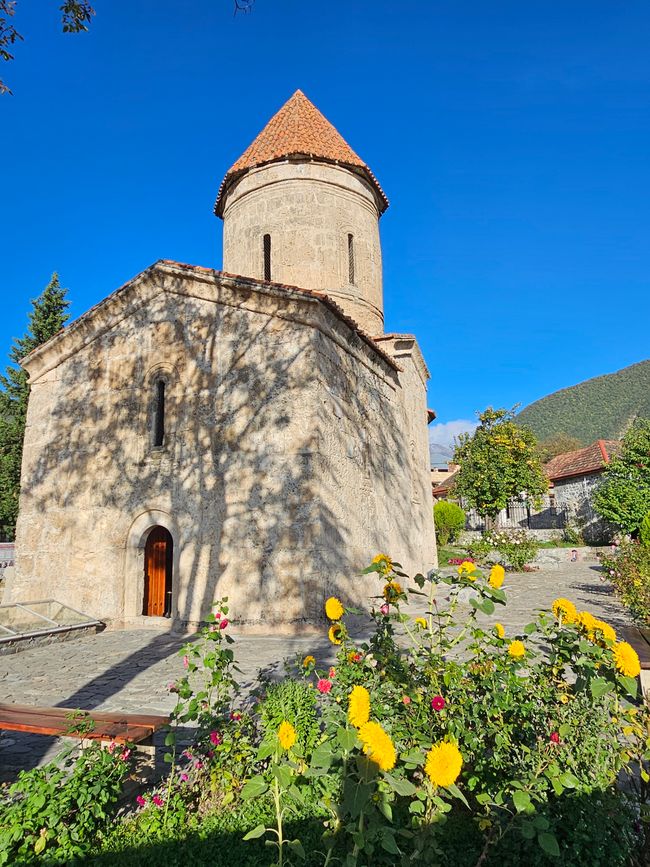
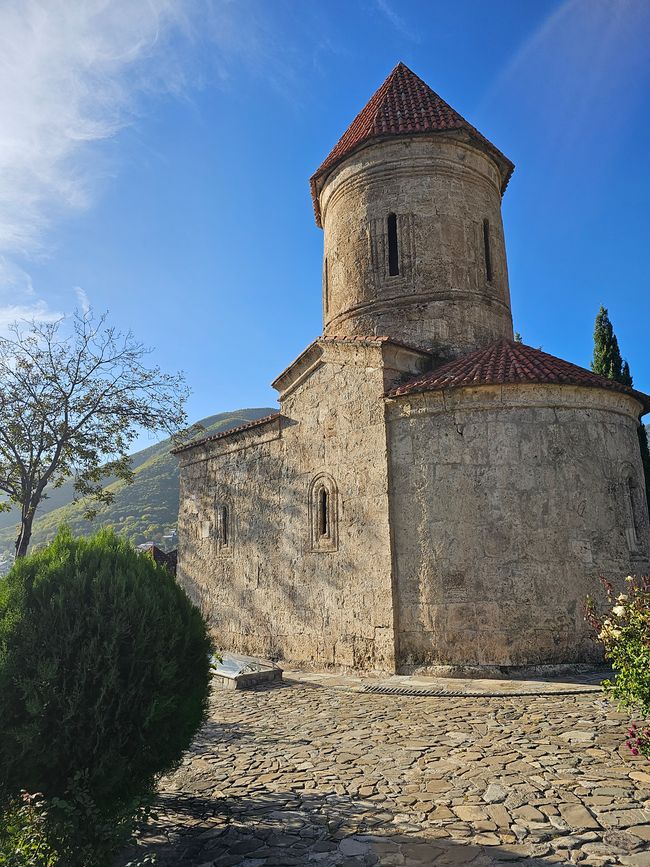
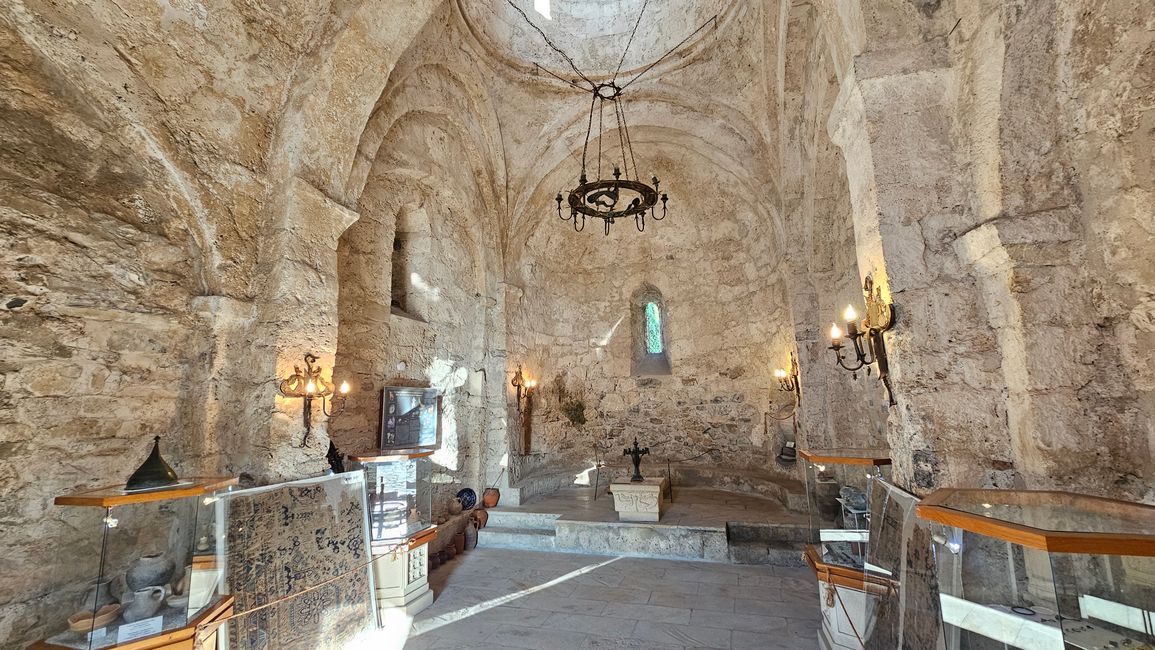
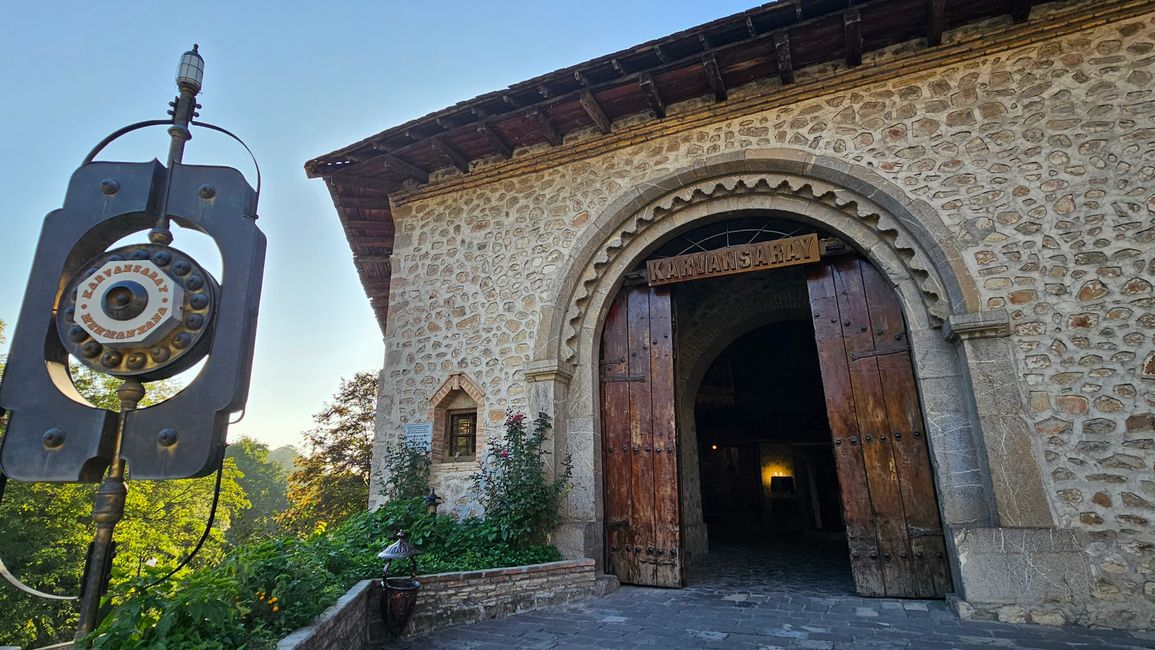
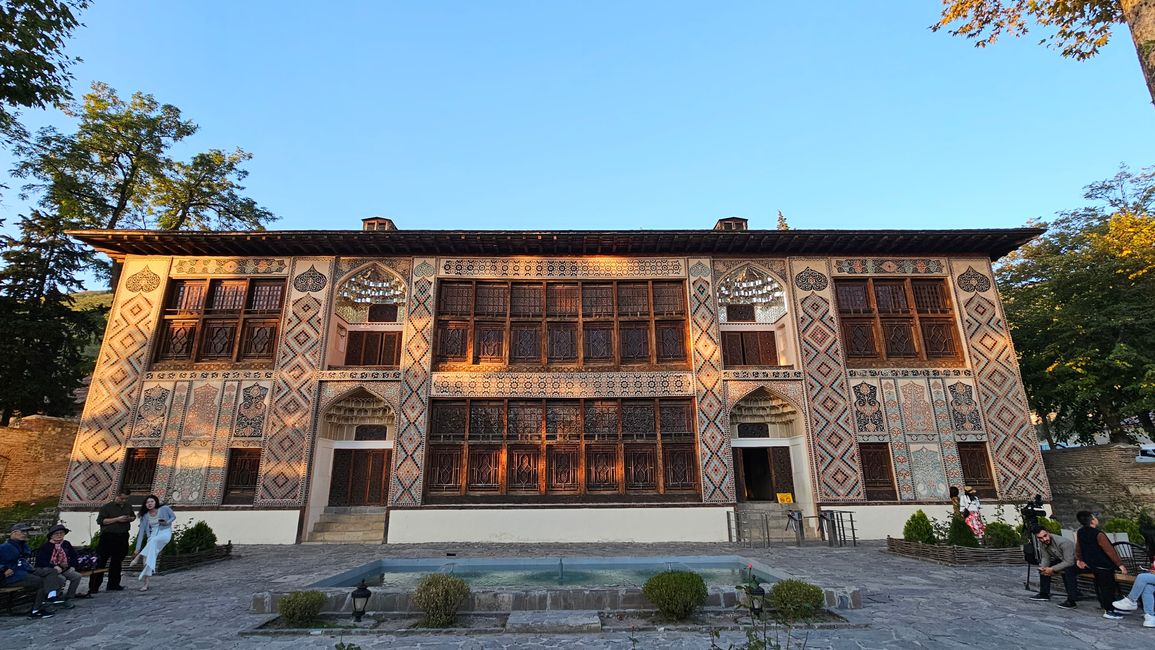
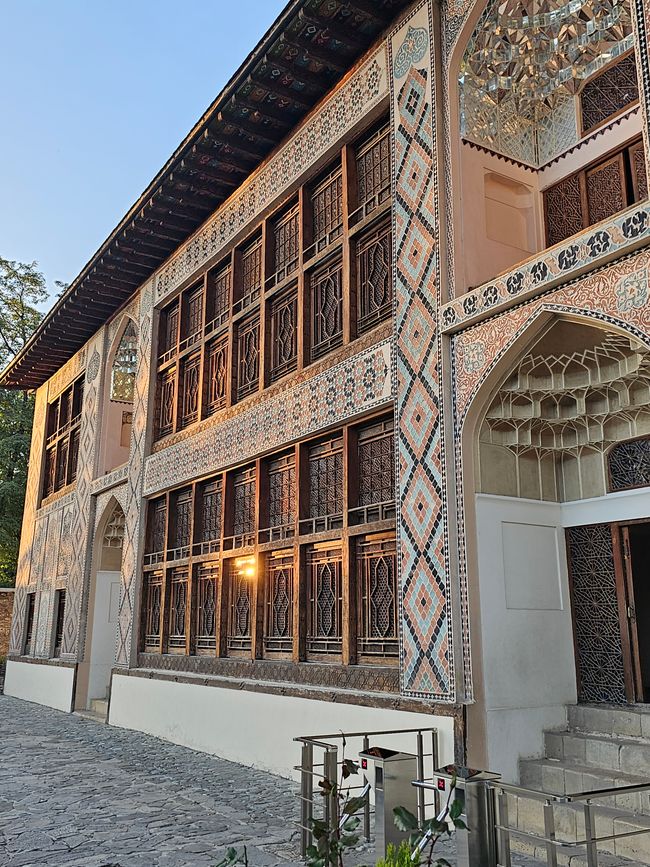
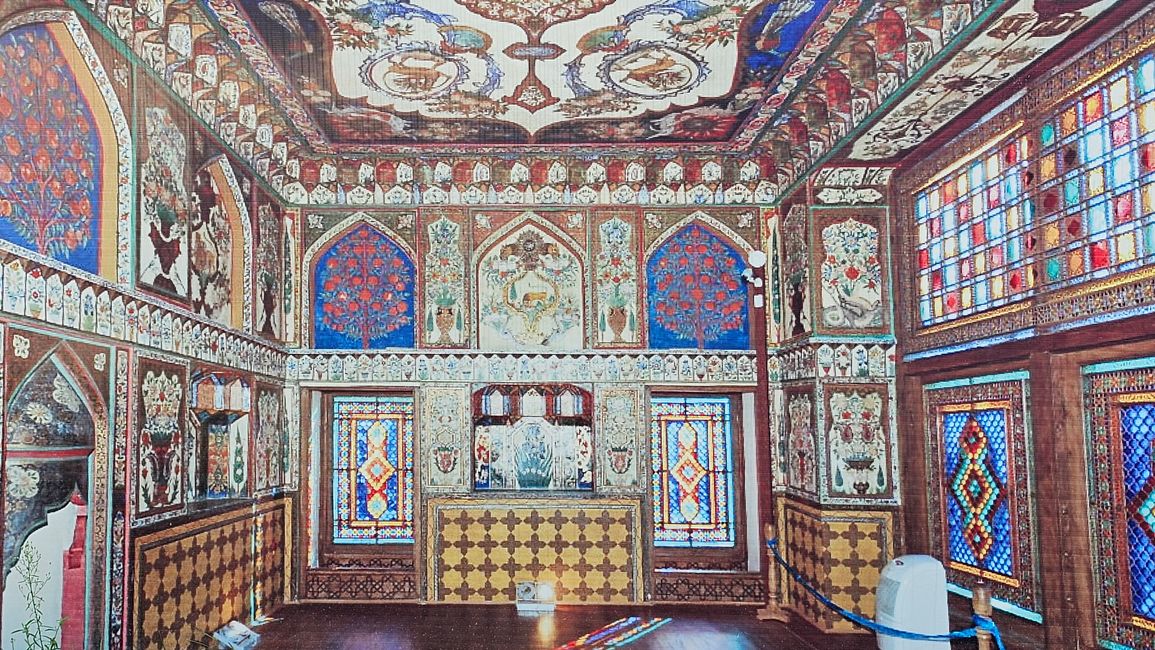
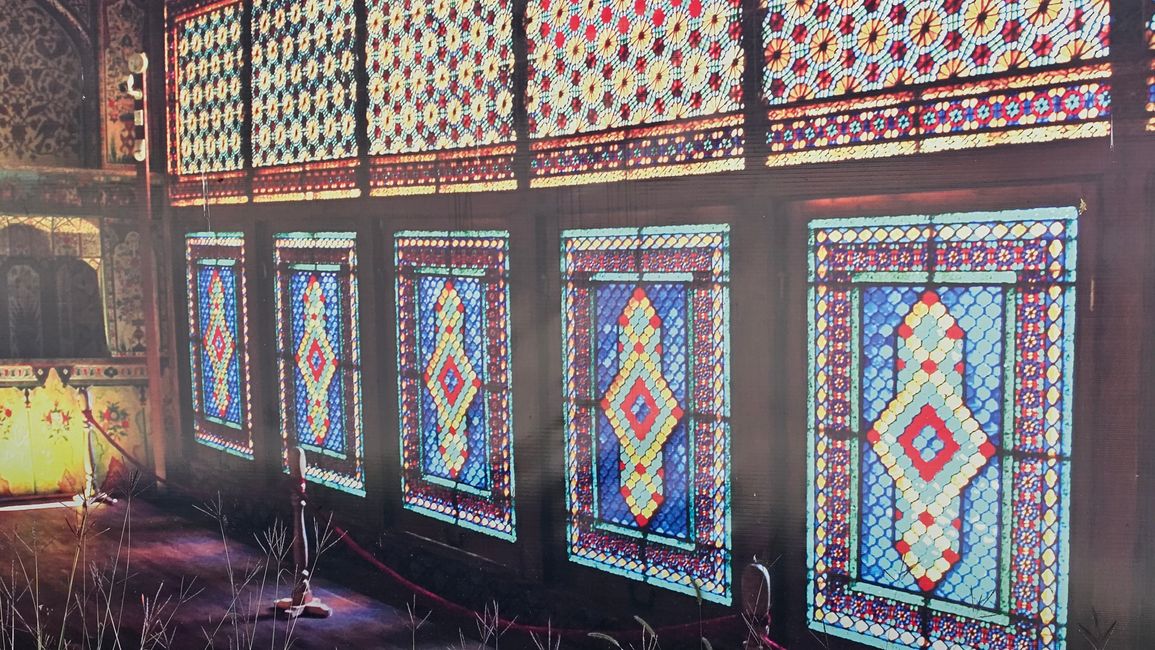
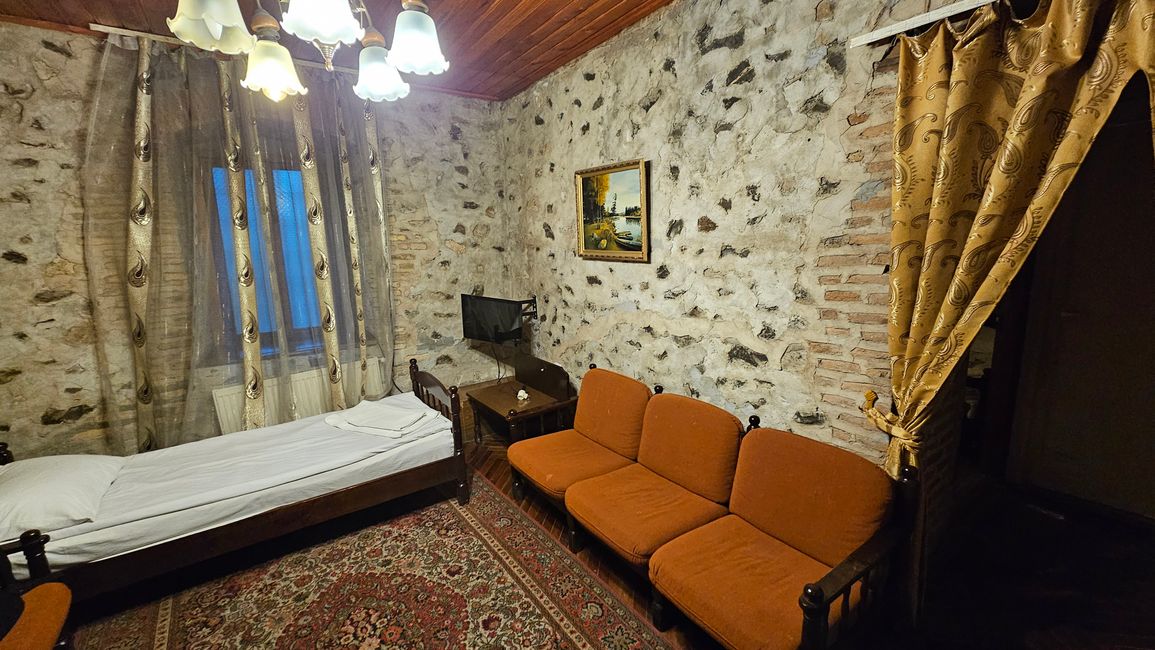
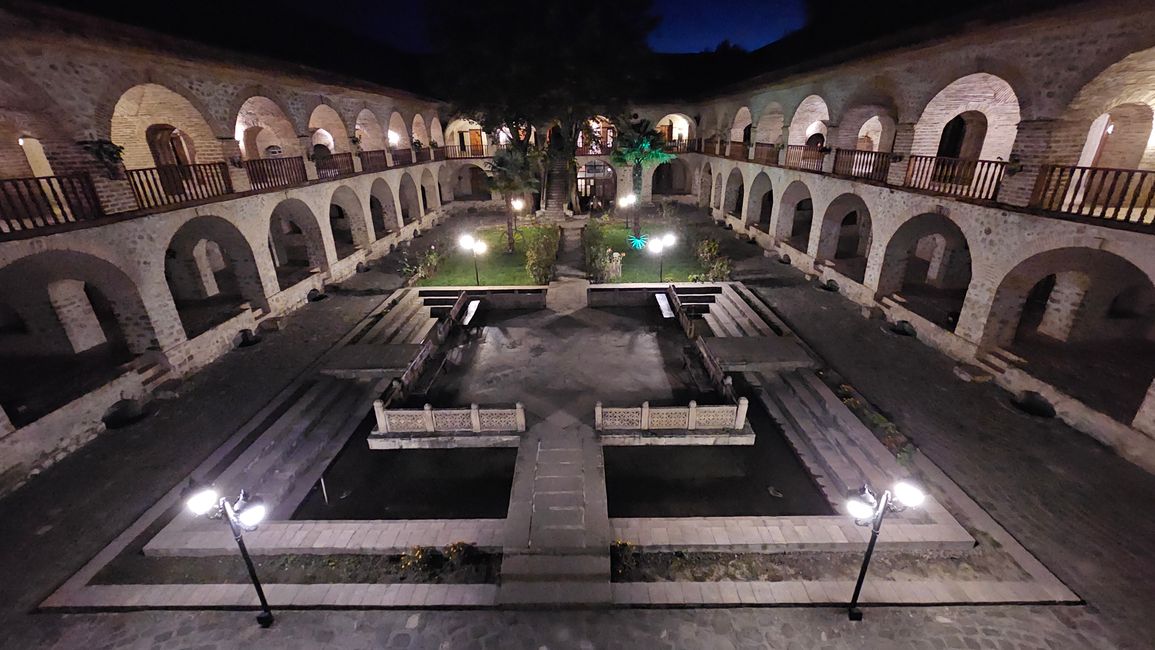
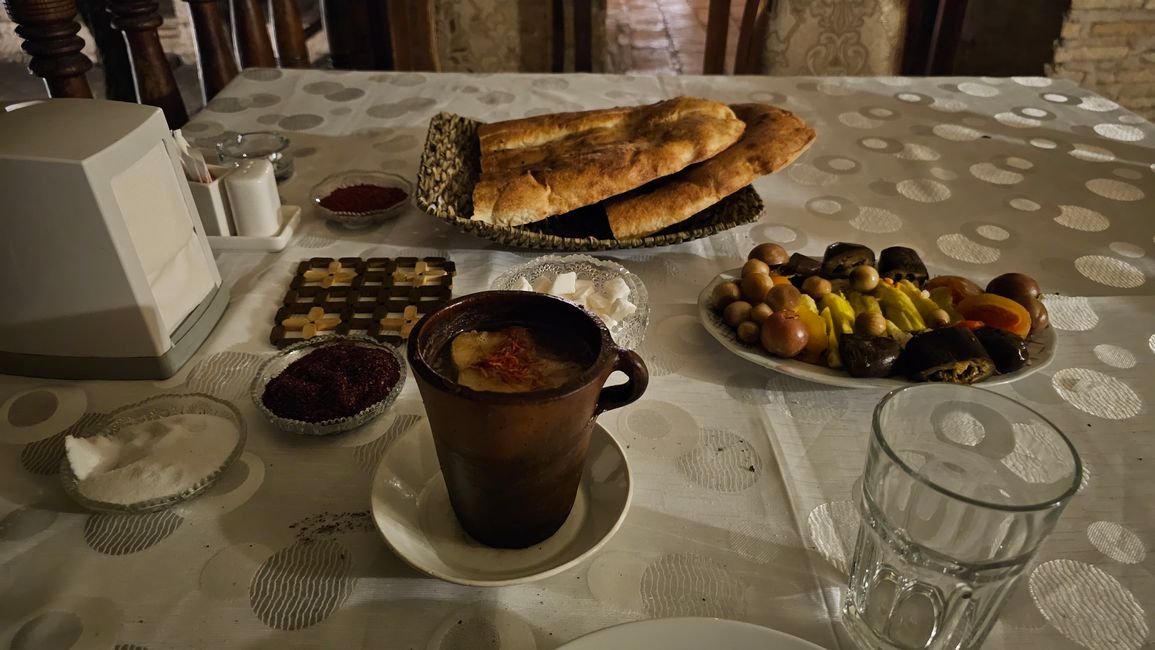
When selecting his accommodations, Don Curry always tries to find buildings that fit into the region he is traveling to and, in the best case, even have a historical background. Jabir's apartment in a classic Baku residential building or Rahman's guesthouse can certainly be described as regionally typical. The EviM Hotel in Lahıc also belongs to this category as it was built in the usual architectural style of this city. Don Curry wanted to go one step further with his accommodation in Sheki: it should be truly historic.
But first, breakfast at the EviM Hotel was enticing. The first thing the manager reported was that the police had found the three men yesterday evening and were able to help them. Don Curry was happy about this reasonably good outcome. The meal presented, on the other hand, did not necessarily invite celebration: two cold, hard-boiled eggs, bread, butter, cheese, jam and honey stood in front of him in small bowls and bowls, nothing fresh. But the tea was convincing and helped to wash down the rest.
After leaving the hotel, Don Curry strolled through rustic Lahıc. In Azerbaijan, the town is considered a kind of Rothenburg ob der Tauber, a kind of inhabited open-air museum from the good old days. The coarse cobblestones of all the streets and paths reinforced this impression, but at the same time made it difficult to move forward. Almost all of the buildings in the city center date from the 12th - 14th centuries. and were built by the Tat people who still live here today in their very own architectural style from carved river stones in order to make them resistant to the frequent earthquakes. Lahıc is famous throughout Azerbaijan for the coppersmith craft, which has been cultivated here for centuries. Don Curry discovered several shops and workshops in the picturesque old town where you could hear people working with hammers and anvils.
As the journey continued, Kia once again ran into a large herd of sheep and had to laboriously make her way through the masses of animals. Shortly before the winter sports resort of Qəbələ, Don Curry turned into a nature reserve, the highlight of which is the Yeddi Gözəl waterfall, the "Waterfall of the Seven Beauties". A shocking amount of tourist infrastructure had formed at the foot of the natural wonder - from parking attendants to souvenir shops, cafés and restaurants to several children offering bouquets of flowers for sale on the access road. Don Curry resisted all of these temptations (except for parking) and bravely climbed the numerous and completely irregular steps to the multi-tiered waterfall. He reached the destination bathed in sweat and really enjoyed the cooling spray of the photogenically falling water.
His next goal required even more effort from him, although of a completely different kind: it had to be found with some difficulty. Although the ancient city of Gabala could be easily located on Google Maps, there were two ways to access it from different directions. Don Curry chose the shorter one. After 20 km on good roads he suddenly turned onto a gravel road. That didn't seem very comfortable to him, but the remaining 2.2 km couldn't be too bad, even on a gravel road, he thought confidently. But the track deteriorated noticeably: first it led over coarse scree, then through several deep puddles and finally over a boggy forest path. When only 400 m remained to be covered, a raging torrent about 5 m wide crossed the piste. There was no further progress here. Even on foot, Don Curry would not have been able to safely cross the stream. So the whole terrible route back and another 50 km on roads to the second access option. This was effective!
And yet the goal was still a bit reluctant. When Don Curry reached the site of the ancient city, a security guard demanded the ticket from Don Curry. Where would Don Curry get a ticket from? “Museum,” the man explained, turning away from the street. So Don Curry turned back again, but this time he only had to cover around 700 m. The apparently recently built museum also housed the ticket counter. Here Don Curry paid 1 manat to tour the museum, 1 manat to tour the ancient city and 1 manat for the car. Don Curry thought it was the parking fee, but he was wrong. After properly examining the museum treasures, he drove back to the site, was now able to show the ticket and saw the security guard open a large gate through which Kia was now allowed to drive onto the city site. Don Curry has experienced many strange things on his travels, but never a drive-in excavation site. The impressive remains of the city wall and the reconstructed medieval city gate made this detour into Azerbaijan's past particularly worthwhile.
The old Albanian Church of Nic was even more shy than the old Gabala. Despite an intensive search, Don Curry couldn't find her. All he knows is that it can't be in the exact location where it appears on Google Maps. Instead, Don Curry discovered a living Albanian church, clearly more recent but clearly still in liturgical use. Don Curry had read that many members of the predominantly Christian Uden people live in Nic. They certainly celebrate their church services here. A large painting of the Last Supper and a baptismal site in the pond in front of the church announced noticeable Christian activity in the middle of this almost entirely Muslim country.
Don Curry ultimately had better luck with old Albanian churches in the village of Kiş. The church, which is quite hidden in the town center and can only be reached through narrow streets, was excellently signposted. Don Curry had to pay the usual 9 manat entrance fee for foreigners because this medieval church only serves as a museum. The Kingdom of Albania has nothing to do with today's Balkan state. As a Christian state, it was located east of the Georgian kingdoms, but lost so much of its importance after the Arab storm that it disappeared completely in the late Middle Ages. Only a few churches have survived to this day. Don Curry was happy to have found and visited at least one.
His final destination took him to a somewhat later time: the historic city of Sheki, once an important stop on the Silk Road and capital of its own khanate. From the 18th century. Most of the city's sights, such as two caravanserais, come from here. One of them now serves as a hotel and restaurant. Since this hotel cannot yet be reserved via the Internet, Don Curry took the risk of not asking for a free room until he arrived. He was successful and was now able to spend the night in an extremely historical atmosphere. When choosing between a simple room and a luxury room, Don Curry chose the second option, which cost him 50 manat (= €28). However, no real luxury could be expected at that price; The only thing that mattered here was the oriental ambience. Don Curry learned from the manager that the main destination for all tourists in Sheki, the summer palace of the Khans, was only open for 50 minutes. He quickly set off, paid the usual 9 manat and by now had so much experience with the ticket laser scanner that he gained entry himself and the ticket inspector had to follow him into the palace to check his ticket analogously.
The inside of the summer palace looks like an oriental treasure trove. Every single room has delicate frescoes full of flower and animal motifs, but also - completely un-Islamic - depictions of people can be found in historical and mythological scenes. In addition, the unique Shebeke technique, which comes from Sheki and enables large-format stained glass windows, is impressive. Unfortunately, this overwhelming splendor cannot be photographed; several cameras per room and additional security guards prevented even Don Curry from breaking the rules. Later he found two large posters outside with parts of the interior and simply photographed them. Don Curry was surprised to see a large number of Asian tour groups passing through the palace one after the other. He had never met so many tourists even in Baku.
The tour groups also made their way into the caravanserai, but only until 7 p.m. Then this old accommodation with its discreetly lit inner courtyard was left to the hotel guests. Don Curry first found inspiration through photography and then sat down in the hotel restaurant, where he was currently the only guest. Therefore, he was able to choose a wonderful table with a view of the inner courtyard and still sit comfortably outside when it was 20°C. He ordered the typical specialty Şəkis, a piti, and, at the waiter's suggestion, a mixture of pickled vegetables. Since there was no beer in this restaurant, he chose compote and sparkling water, which when mixed resulted in a refreshing, fruity, not too sweet drink.
Piti is a type of stew made from chickpeas, potatoes, onions and as fatty lamb as possible in a strong broth, which is prepared and served in a tall earthenware vessel. The waiter showed Don Curry the classic way to enjoy piti: First, the liquid from the clay pot is poured onto a plate and used as a very spicy starter soup, then you use the soup spoon to break up the solid components in the clay pot into a kind of porridge Eaten with bread and pickled vegetables as the main course. Don Curry really liked the piti itself because of its exquisite spiciness, but the sour vegetables usually seemed too sour to him. In total, the filling meal with drinks cost around €7.50. Real enjoyment can sometimes be very cheap.
Afterwards, Don Curry wandered around the nighttime Sheki for a while until he retired to his luxury caravanserai room and perhaps dreamed of historical times...
Sagot
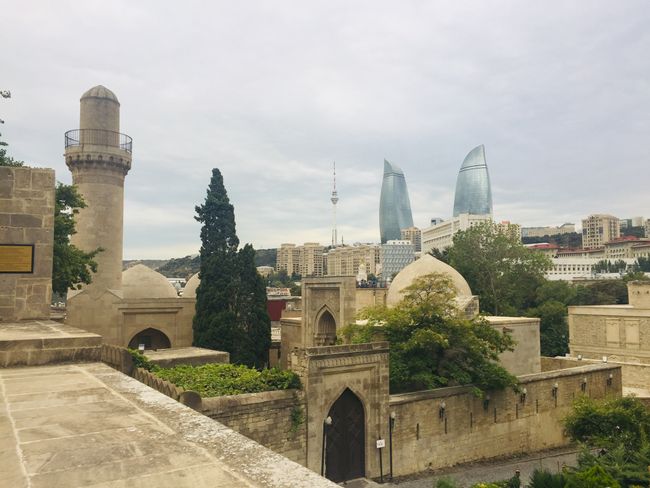
Mga ulat sa paglalakbay Azerbaijan

